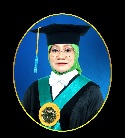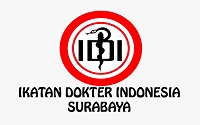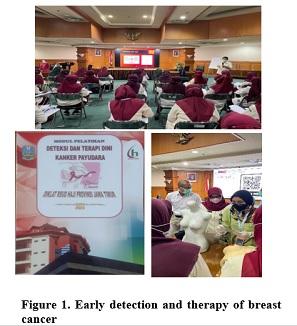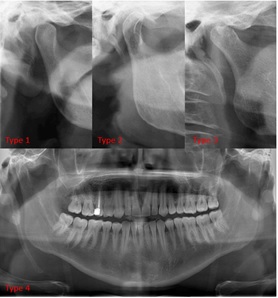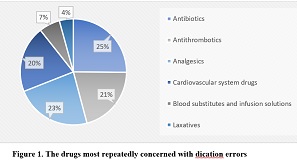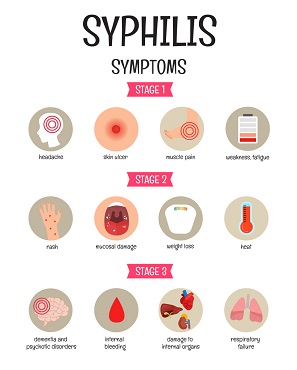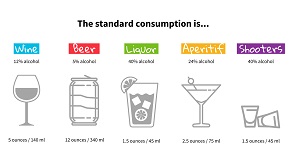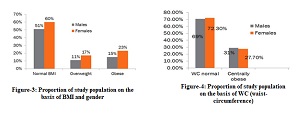Influence of Husbands’ Attitudes Versus Knowledge on Maternal Breastfeeding Self-Efficacy Following Caesarean Section

Self-efficacy predicts a mother’s decision to breastfeed, the level of effort invested in breastfeeding, and the responses to challenges faced during the process. This study aims to determine the relationship between a husband’s knowledge and attitude towards exclusive breastfeeding and the self-efficacy of mothers who have undergone cesarean sections. The design of this research is correlational with a cross-sectional framework. The sample consisted of 38 mothers post-cesarean section and their husbands, obtained through a Non-Probability Sampling technique using sequential sampling in the Al Aqsha 4th room of Haji Hospital, East Java Province. The analysis in this study employs Spearman’s rho. The instrument assessed husbands’ knowledge and attitudes regarding exclusive breastfeeding and the short form of breastfeeding self-efficacy (BSE-SF). The study results indicated that the knowledge level of most husbands fell into a suitable category, at 89.5%. Most husbands exhibited positive attitudes, at 65.8%. Meanwhile, the majority of post-cesarean section mothers recorded high levels of breastfeeding self-efficacy, at 78.9%. The results of the Spearman rho test regarding the knowledge and self-efficacy of breastfeeding mothers following cesarean sections yielded p=0.141 (>0.05). In contrast, the relationship between husbands’ attitudes and the self-efficacy of breastfeeding mothers post-cesarean section was p=0.022 (<0.05). While the knowledge and attitudes of husbands regarding exclusive breastfeeding are categorized mainly as good, their knowledge does not influence the self-efficacy of mothers breastfeeding after cesarean delivery.
INTRODUCTION
Exclusive breastfeeding for the first 6 months of a child’s life is part of implementing the gold standard Infant and Child Feeding (ICF) recommended by World Health Organization (WHO) and UNICEF. UNICEF estimates that breastfeeding exclusively for up to 6 months can prevent the deaths of 1.3 million children under the age of 5 years. However, still, less than half of the world’s population breastfeeds exclusively in their infants (0-5 months), with a global rate of 36%11. UNICEF has set a target of 80% by 2025 for each country to carry out exclusive breastfeeding. Based on data from WHO, the average rate of exclusive breastfeeding worldwide in 2022 is only 44% of the 50% exclusive breastfeeding target22. According to Basic Health Research (RISKESDAS), in 2021, 52.5 percent – or only half of the 2.3 million babies under six months received exclusive breastfeeding in Indonesia, which decreased by 12 percent in 201922. Only 67.96% of Indonesians were exclusively breastfeeding in 2022, compared to 69.7% in 2021. This indicates that more intensive support is needed to increase this coverage, achieving the national target set by the government, which is as much as 80%22.
In the meantime, in the province of East Java, 66.90% of infants under 6 months old in 2020, 69.61% in 2021, and 69.72% in 2022 experienced exclusive breastfeeding22. Indonesia’s exclusive breastfeeding coverage in 2022 was recorded at only 67.96%, down from 69.7% in 2021, indicating the need for more intensive support to increase, achieving the target set by the government nationally, which is as much as 80%2. Meanwhile, in East Java, the percentage of babies under 6 months who receive exclusive breastfeeding is 66.90% in 2020, 69.61% in 2021, and 69.72% in 202222.
External factors are the family factors, especially the husband. Misperception and inadequate support for breastfeeding are still challenges in many places33. Internal factors, namely post-caesarean section mothers, are faced with challenges in the recovery of post-cesarean section surgery and its treatment, so they often have difficulty breastfeeding at the beginning of the postpartum period44.
Problems surrounding exclusive breastfeeding are always essential to pay attention to. Breastfeeding difficulties, among others, arise in Post-Cephalan Section patients and significantly affect the self-efficacy of breastfeeding mothers. Therefore, it is essential for researchers interested in conducting a study on the relationship between a husband’s knowledge and attitude about exclusive breastfeeding and the self-efficacy of post-caesarian section mothers to survey this relationship.
MATERIALS AND METHODS
This study uses a correlational research design, which is a research design used to reveal the relationship between two or more variables and the strength of the correlation between variables through a correlation test and a cross-sectional research design. The technique used for sampling is Non-Probability Sampling with sequential sampling. Research at Haji Hospital of East Java Province in January-March 2024. This research has been declared ethically feasible by the ethics committee of The Hajj Hospital of East Java Province no. 445/025/KOM. ETIQUE /2024 on February 1, 2024..
Researchers collecting data use questionnaires that contain questions and statements that respondents will answer. The inclusion criteria in this study were post-cesarean section patients, husbands, and patients who were in the treatment room and could read and write. The exclusion criteria were patients who had contraindications to breastfeeding (based on the decision of the pediatrician in the room) or the baby died, patients and/or husbands who left the research location during the research process, and patients whose husbands did not accompany them during the treatment period. The questionnaire consists of a demographic characteristics questionnaire, a husband’s knowledge questionnaire related to exclusive breastfeeding, a husband’s attitude questionnaire related to exclusive breastfeeding, and a breastfeeding self-efficacy questionnaire.
This study’s data analysis was done in univariate and bivariate stages. Univariate analysis is used to obtain a picture of the frequency distribution of each variable studied. Bivariate analysis aims to test the relationship between independent variables and dependent variables. In this study, the scale of knowledge, attitude, and self-efficacy data on breastfeeding are ordinal data. Each variable is then correlated/connected using the Spearman Rho correlation test with a significance level of 0.05.
RESULTS
Respondents in this study were post-cesarean section mothers and their husbands who were in the inpatient room of Al-Aqsha 4, Haji Hospital, East Java Province, Surabaya, Indonesia. Table 1 below shows the characteristics of the respondents in this study.
Characteristics | Category | Frequency (f) | Percentage (%) |
Mother’s age | 20-35 years | 30 | 78.9 |
>35 years | 8 | 21.1 | |
Mother’s education | Lower Education (Elementary, Junior) | 14 | 36.9 |
High Education (Senior, University) | 24 | 63.1 | |
Mother’s job | Housewife (IRT) | 24 | 63.2 |
Private employee | 10 | 26.3 | |
Self-Employee | 4 | 10.5 | |
Father’s age | 20-35 years | 27 | 71.7 |
>35 years | 11 | 28.9 | |
Father’s education | Lower Education (Elementary, Junior) | 11 | 28.9 |
High Education (Senior, University) | 27 | 71.1 | |
Father’s job | Civil Servants | 2 | 5.3 |
Private employee | 23 | 60.5 | |
Self-employee | 13 | 34.2 | |
Family Income | < Rp. 1.400.000 | 7 | 18.4 |
Rp. 1.400.000 – Rp 3.000.000 | 16 | 42.1 | |
> Rp 3.000.000 | 15 | 39.5 |
There were 38 married couples in the study’s sample. According to the demographic data of the study’s respondents, women of healthy reproductive age (20–35 years old) made up the majority (78.9%), with women of at-risk reproductive age (over 35 years old) making up the remaining minor percentage. Among those who fall
Rollins NC, Bhandari N, Hajeebhoy N, Horton S, Lutter CK, Martines JC, et al. Why invest, and what it will take to improve breastfeeding practices? Lancet (London, England) [Internet]. 2016 Jan 30 [cited 2025 Apr 19];387(10017):491–504. DOI: DOI: 10.1016/S0140-6736(15)01044-2
UNICEF. World Breastfeeding Week: UNICEF and WHO urge greater support for breastfeeding in Indonesia as rates decline during COVID-19 [Internet]. 2022 [cited 2025 Apr 19]. Available from: https://www.unicef.org/indonesia/press-releases/world-breastfeeding-week-unicef-and-who-urge-greater-support-breastfeeding-indonesia
Aryeetey R, Dykes F. Global implications of the new WHO and UNICEF implementation guidance on the revised Baby-Friendly Hospital Initiative. Matern Child Nutr [Internet]. 2018 Jul 1 [cited 2025 Apr 19];14(3). DOI: DOI: 10.1111/mcn.12637
Duran S, Vural G. Problems Experienced by the Mothers in Post-Cesarean Period: A Narrative Review. Iran J Public Health [Internet]. 2023 [cited 2025 Apr 19];52(10):2036. DOI: 10.18502/ijph.v52i10.13841
Sabo A, Abba J, Sunusi Usman U, Musa Saulawa I, Alzoubi MM, Al-Mugheed K, et al. Knowledge, attitude, and practice of exclusive breastfeeding among mothers of childbearing age. Front Public Heal 01 Front Front Public Heal. 2023;11:1277813. DOI: 10.3389/fpubh.2023.1277813
Kitano N, Nomura K, Kido M, Murakami K, Ohkubo T, Ueno M, et al. Combined effects of maternal age and parity on successful initiation of exclusive breastfeeding. Prev Med Reports [Internet]. 2015 Jun 1 [cited 2025 Apr 19];3:121. DOI: 10.1016/j.pmedr.2015.12.010
Syam S, Fadjriah RN, Faralizayani. Behavior of Working Mothers in Exclusive Breast Milk in The Work Area of Bulili Public Health Center. J Heal Nutr Res. 2022;1(1):49–55. DOI : 10.56303/jhnresearch.v1i1.22
Bakoula C, Veltsista A, Prezerakou A, Moustaki M, Fretzayas A, Nicolaidou P. Working mothers breastfeed babies more than housewives. Acta Paediatr Int J Paediatr. 2007 Apr;96(4):510–5. DOI: 10.1111/j.1651-2227.2006.00185.x
Sinaga EW, Yustina I, Rochadi RK, Nurmaini N, Zuska F. Identification of Barriers To Exclusive Breastfeeding for Post Sectio Caesarea Mothers in Paya Pasir Village, Marelan District. Int J Midwifery Res. 2023;3(1):51–7. DOI: 10.47710/ijmr.v3i1.50
Yang Z, Ding Y, Song S, Zhang Y, Li A, Su M, et al. Factors Affecting the Breastfeeding Duration of Infants and Young Children in China: A Cross-Sectional Study. Nutrients [Internet]. 2023 Mar 1 [cited 2025 Apr 19];15(6):1353. DOI : 10.3390/nu15061353
Kristyaningrum LD, Krianto T. The Effect of Breastfeeding Method on the Duration of Breastfeeding: Systematic Literature Review. Indones Heal Promot Publ Media [Internet]. 2024 Jan 1 [cited 2025 Apr 19];7(1):39–50. Available from: https://journals.indexcopernicus.com/publication/3862388/Lilis Dwi Kristyaningrum--Pengaruh-Metode-Pemberian
Khusniyati E, Purwati H. Analysis of Breastfeeding Self-Efficacy (BSE) in Breastfeeding Mothers. JSRET (Journal Sci [Internet]. 2024;3(1):139–45. Available from: https://jsret.knpub.com/index.php/jrest/article/view/327
Pasaribu P, Mayulu N, Molanda NSH. 2017. Hubungan Status Sosial Ekonomi Orang tua dengan Pemberian ASI Eklusif di Kota Manado [The Relationship Between Parents' Socioeconomic Status and Exclusive Breastfeeding Practices in Manado City]. Kesmas: Jurnal Kesehatan Masyarakat Univeristas Sam Ratulangi. 6 (3) : 1-9. https://ejournal.unsrat.ac.id/v3/index.php/kesmas/article/view/23024
Heck KE, Braveman P, Cubbin C, Chávez GF, Kiely JL. Socioeconomic Status and Breastfeeding Initiation Among California Mothers. Public Health Rep [Internet]. 2006 [cited 2025 Apr 19];121(1):51. DOI: 10.1177/003335490612100111
Agrawal J, Chakole S, Sachdev C. The Role of Fathers in Promoting Exclusive Breastfeeding. Cureus [Internet]. 2022 Oct 16 [cited 2025 Apr 19];14(10). DOI: 10.7759/cureus.30363
Mitchell-Box K, Braun KL. Fathers’ thoughts on breastfeeding and implications for a theory-based intervention. J Obstet Gynecol neonatal Nurs JOGNN [Internet]. 2012 [cited 2025 Apr 19];41(6). DOI: 10.1111/j.1552-6909.2012.01399.x
Dennis C. The Breastfeeding Self‐Efficacy Scale: Psychometric Assessment of the Short Form. J Obstet Gynecol Neonatal Nurs. 2003 Nov;32(6):734–44. DOI: 10.1177/0884217503258459
Susilawati, Febryaningsih S. Perbedaan Self Efficacy Pada Ibu Menyusui Post Partum Normal Dan Post Sectio Caesarea Di Rsud Sekarwangi Kabupaten Sukabumi [Differences in Breastfeeding Self-Efficacy Between Mothers With Vaginal Delivery and Those With Caesarean Section at Sekarwangi Regional Hospital, Sukabumi Regency]. J Ilm Keperawatan Altruistik. 2019;2(2):42–52. https://www.jurnal.institutkesehatanhermina.ac.id/JIKA/article/view/40
Putri AM, Dian Isti Angraini, Sofyan Musyabiq Wijaya. The Effect of Husband’s Knowledge and Attitude Towards Mother’s Behavior on Giving Exclusive Breastfeeding in Negeri Sakti Village in Pesawaran Regency. méd. prof. j. of Lampung [Internet]. 2021Feb.6 ;10(4):732-6. https://journalofmedula.com/index.php/medula/article/view/114
Rahmatillah F, and Ariyani, H, 2018. Hubungan Pengetahuan Suami Tentang Pemberian ASI Terhadap Motivasi Ibu Dalam Menyusui Di UPTD Puskesmas Bentar Kota Tasikmalaya [The Relationship Between Husbands’ Knowledge of Breastfeeding and Mothers’ Motivation to Breastfeed at UPTD Bentar Public Health Center, Tasikmalaya City]. Jurnal Mitra Kencana Keperawatan dan Kebidanan. 1 (2) : 31-40. http://www.jurnal.ubktasikmalaya.ac.id/index.php/jmk_kb/article/view/33
Nepali S, Shakya M. Husband’s Support for Breastfeeding and Breastfeeding Efficacy of Nepalese Mothers. Health Prospect [Internet]. 2019 Mar. 25 [cited 2025 May 2];18(1):14-20. DOI : 10.3126/hprospect.v18i1.19060
Wahyuni, E. (2020). Dukungan Suami Terhadap Keberhasilan Pemberian ASI Ekslusif pada Ibu Bekerja [The Influence of Husbands’ Support on the Success of Exclusive Breastfeeding Among Employed Mothers]. JKM (Jurnal Kenidanan Malahayati), 5(4)., 299-308 https://ejurnalmalahayati.ac.id/index.php/kebidanan/article/view/2715/0
Helfiva S, Az-zahra S, Halifah E, Fitri A. Hubungan Dukungan Suami dengan Breastfeeding Self Efficacy dalam Pemberian ASI di Wilayah Kerja Puskesmas Banda Raya Kota Banda Aceh [ The Correlation Between Husband’s Support and Breastfeeding Self-Efficacy Among Mothers in The Working Area of The Community Health Center of Banda Raya of Banda Aceh]Jurnal Perawat Indonesia [Internet]. 2023Jan.1;6(3):1201-9 DOI: 10.32584/jpi.v6i3.1879
Durmazoğlu G, Çiçek Ö, Okumuş H. The effect of spousal support perceived by mothers on breastfeeding in the postpartum period. Turkish Arch Pediatr. 2021;56(1):57–61. DOI: 10.14744/TurkPediatriArs.2020.09076
Copyright (c) 2025 ARI DEWANTI ARI DEWANTI, Ivon Diah Wittiarika., S.Keb., Bd., M.Kes, Dr. Pudji Lestari, dr., M.Kes

This work is licensed under a Creative Commons Attribution-ShareAlike 4.0 International License.
- The journal allows the author to hold the copyright of the article without restrictions.
- The journal allows the author(s) to retain publishing rights without restrictions.
- The legal formal aspect of journal publication accessibility refers to Creative Commons Attribution Share-Alike (CC BY-SA).
- The Creative Commons Attribution Share-Alike (CC BY-SA) license allows re-distribution and re-use of a licensed work on the conditions that the creator is appropriately credited and that any derivative work is made available under "the same, similar or a compatible license”. Other than the conditions mentioned above, the editorial board is not responsible for copyright violation.


